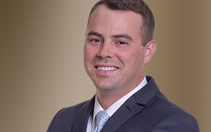Overview of Gulf Oil Spill Claims

On April 20, 2010 the Deepwater Horizon oil rig exploded and sank into the Gulf of Mexico. The massive explosion uncapped a well that leaked 205.8 million gallons of crude oil into Gulf currents until its containment on July 15, 2010.
The long-term effects of the explosion, both natural and economic, are still unknown. However, in the short-term, it is well documented that the spill has caused extensive damage to marine and wildlife habitats and has negatively affected associated economic interests in the Gulf region. Moreover, a national perception that oil had reached Florida beaches has severely damaged the tourism sector of Florida’s economy. Locally, data indicates that tourism in Charlotte County was down during the summer months of 2010 under what the county recorded in 2009.
In order to stem a certain flood of litigation, British Petroleum (BP) established the Gulf Coast Claims Facility (GCCF)—a $20 billion claims fund—to compensate businesses and individuals for losses associated with the oil spill. Compensation is paid for a number of reasons, including removal and clean-up costs, physical injury and death, property damage, loss of subsistence and natural resources and lost earnings or profits. In Florida, the overwhelming majority of paid claims have been on account of lost earnings or profits.
Unfortunately, lost earnings or profits claims may go uncompensated as businesses and individuals do not realize they possess a compensable claim. Locally, those claimants include, but are not limited to:
- hotels, restaurants and collateral businesses that depend on tourism
- real estate agencies that lost income due to depressed property sales and lack of rentals
- marinas and peripheral servicers
- commercial fisherman, fishing guides and sea food distributors
Compensation by the fund is designed to put a claimant in the position it would have been had the spill never occurred. For claimants seeking payment for lost earnings or profits, BP’s benchmark on damages has been profits earned in 2010 after the spill occurred, under those earned during the same months in 2009.
In order to be compensated by the fund, individuals and businesses must file a claim with the GCCF for either an interim or final payment. Interim claims can be filed quarterly and do not waive legal rights against BP or others associated with the spill. However, interim payments only compensate for past damages. On the other hand, a final claim is a request for a one-time lump sum payment. A final payment requires waiver of all rights against BP and others associated with the spill, but compensates for past as well as future damages.
Along with a claim form, a claimant must compile and provide to the GCCF all documentation tending to support the claim. These documents can vary depending on the claim but typically include financial statements such as tax returns, profit and loss statements, financial projections, business licenses and sworn affidavits.
Documenting a successful claim against BP is a meticulous process that can be overwhelming at times. Although an attorney is not required to submit a claim against BP for damages arising out of the Deepwater Horizon oil spill, many individuals and businesses have chosen to seek the assistance of an attorney in doing so.
